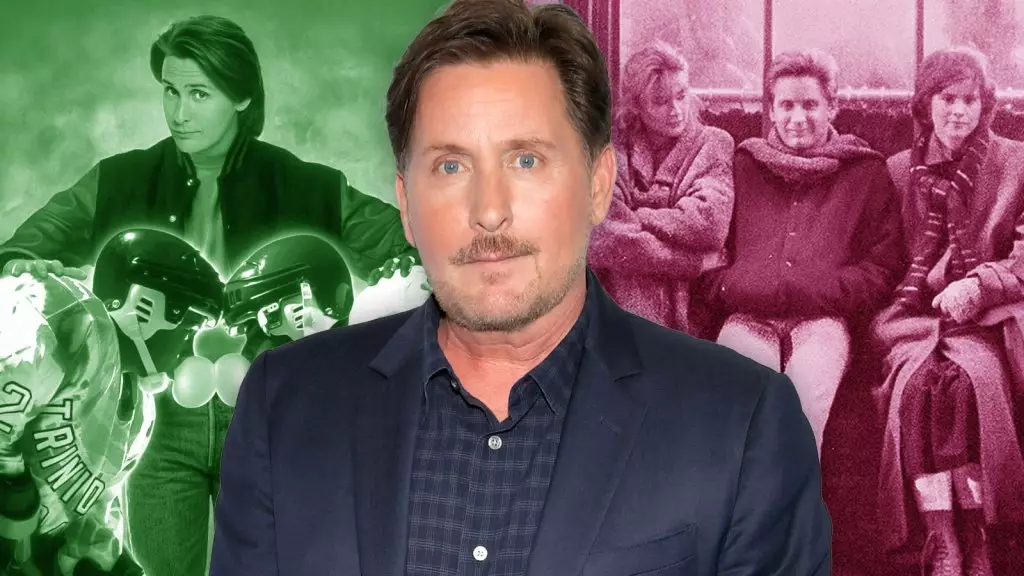The entertainment industry has a remarkable way of turning nostalgia into gold. Emilio Estevez, a name synonymous with ’80s and ’90s cinema, particularly through his iconic role as Coach Bombay in *The Mighty Ducks*, recently opened up about his intentions for a new sequel—*Mighty Ducks 4*. In an age where revivals are rampant, it is disheartening to see that Estevez’s fresh take on this beloved franchise failed to make it to the screen. Instead of igniting excitement and inspiring the next generation of fans, this sequel became just another casualty in the often-pitiful landscape of Hollywood’s storytelling.
Estevez laid out a concept that could have beautifully updated the franchise, shifting its focus to women’s empowerment in sports. His idea of a professional women’s hockey league with an all-girl team, led by Coach Bombay, would not only engage but also empower a demographic that has long been underrepresented in sports narratives. With lines like, “My girls are going with me. They have to have a shot,” Estevez clearly aimed to create a compelling story rooted both in charm and modernity. Unfortunately, the apparent reluctance from Disney to pursue such a relevant storyline demonstrates a missed opportunity that ranks among Hollywood’s greatest blunders.
A Troubling Departure
It’s puzzling to think that a network would turn its back on an idea ripe with potential just because of “creative differences.” Estevez’s statement hints at a fundamental flaw in how the powers that be manage creative projects. The fallout from *Mighty Ducks: Game Changers*—which he admitted was filled with “disasters”—suggests a frustrating cycle where decision-makers prioritize contracts and creative disputes over storytelling excellence. One has to wonder: how many innovative concepts remain unrealized due to conflicts driven by corporate interests rather than a genuine pursuit of artistic merit?
Lessons Learned from the Past
Estevez’s reflections on his experiences on set offer a haunting peek into the psychological struggles of the entertainment industry. Recalling his time on *St. Elmo’s Fire*, he described director Joel Schumacher’s chaotic and insecure leadership style as a strong motivator to ensure he would never replicate that behavior. Estevez’s openness about these harrowing experiences serves both as a cautionary tale and as a manifesto for a new generation of filmmakers and directors—one that should prioritize collaboration and emotional support over fear and intimidation.
It is ironic that the same youth-driven spirit that once defined *The Mighty Ducks* franchise is overshadowed by the discord when creatives try to breathe new life into it. Estevez’s vows to never become a bullying director could inspire a refreshing workplace culture, yet the industry’s historical dismissal of such values can feel discouraging.
Ultimately, it’s painfully clear that *Mighty Ducks 4* was not just an idea dashed against the rocks of corporate compliance; it represents an entire ethos of creativity stifled by fear and mismanagement. Stories like Estevez’s remind us of the vibrant ideas that we may never get to experience because of decisions made by a few individuals far removed from the hearts of the audience.

